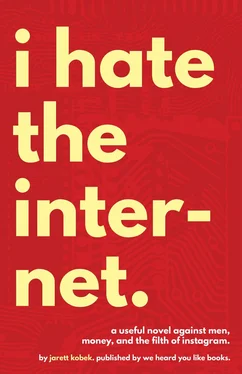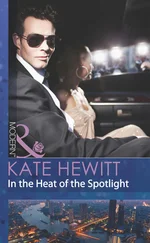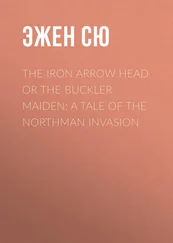Jeremy was sitting on a couch when Adeline arrived. The cafe had a few people but it was quiet. It was always quiet.
“Darling, are we staying or should we go for a walk?” asked Adeline.
“Let’s stay,” said Jeremy.
“Have you ordered?”
“Not yet,” said Jeremy.
Adeline and Jeremy stood in line behind an old hippie. The old hippie took his time. The old hippie asked questions and pontificated about his lactose intolerance and his almond allergy.
Adeline examined the display cases with all of the baked goods.
“Look, darling,” said Adeline to Jeremy, “They have both a cupcake and a pastry.”
Jeremy ignored her.
“Now, Mister J.W. Bloss, why ever have you visited our fair city?” asked Adeline as they sat down. “I do believe that when last I gazed upon your grim visage, you stated sans ambiguity that you found the general airs of this particular environment to be an intense toxicity.”
“I’m here because of you,” said Jeremy.
“Moi?”
“You’ve got to stop tweeting. ”
“’Swounds! Strewth! What sayest thou, sirrah? Dost thou forget t’was on thine very own recommendation that I adopted the fine art of tweeting ?”
“You can’t just go around tweeting about the word %&$#?@. ”
“Darling, did I give offense?”
There was Adeline. Her son was the child of a Persian father. Her son with eumelanin in the basale stratum of his epidermis, marking him as something other than a member of the social construct of the White race. Her son whom she has witnessed struggle with his racial identity.
She was tweeting the word %&$#?@.
She knew that people on Twitter would freak out. She knew that people on the Internet would freak out. That’s the whole purpose of the Internet. Freaking out and making money for other people. Why not Adeline?
She never imagined that Jeremy would care. She hadn’t even given it a thought.
Adeline was from the 1990s, when confrontational aesthetics were all the rage.
Many artists had become very interested in confronting racism, and, in particular, a subset of eumelaninless artists used the word %&$#?@ in their confrontations of the social order.
The problem is that the aesthetics of the 1990s weren’t only confronting the oppressors of the Patriarchy. They were also confronting people who had, in their day-to-day lives, been called %&$#?@.
And many of those people didn’t have a lot of interest in the difference between a peckerwood in the back of a pick up truck and a pointed critique from SoHo.
“That bullshit has been part of my life for years before I met you and it’ll be around until the day that I’m dead and gone,” said Jeremy. “That’s not the problem.”
“What ever then is the problem?”
“When you go around tweeting about the word %&$#?@ , people think of me. I’m the one who gets the emails from Scholastic. People come and find me. Everyone knows we’re friends. We’ve worked together for decades. They want to hear what I have to say, and my interest in being your Negro Spokesman is less than zero, Adeline. Negative balance. I’ve got much better things to do. I’m exhausted. I’m tired. I want to live my life without cleaning up your mess.”
Jeremy reached into his pocket. He took out his phone. His phone was an iPhone. The iPhone had changed everything.
He stroked the glass of his iPhone and opened up GMail, Google’s free e-mail service that served targeted advertisements based on the content of individual user’s messages.
“Look,” he said, passing the phone to Adeline.
Every email was from a journalist asking about Adeline.
Jeremy really did have better things. He was busy.
He was freelance writing for a few video game companies and he was still working in comics, doing work for DC on a reboot of Wild Dog.
Wild Dog was a comic book property created by Max Allen Collins and Terry Beatty in the 1980s, when Adeline and Jeremy both lived in New York City.
There was a crack cocaine epidemic linked to a meteoric rise in crime. The CIA, which had funded the good novel, had also funded the crack cocaine epidemic and the meteoric rise in crime, both causing unfathomable suffering for people with eumelanin in the basale strata of their epidermises.
The comics industry responded to the rise in crime by creating anti-hero vigilantes. These anti-hero vigilantes were different than Spider-Man, a property created by Steve Ditko, or Superman, a property created by Jerry Siegel and Joe Shuster. The new anti-hero vigilantes had no superpowers beyond indignant Whiteness and a willingness to murder.
Almost all of these anti-hero vigilantes had suffered family trauma at the hands of criminals. Dead wives and dead children were very common.
Wild Dog was good with guns, he was ex-military, he wore a hockey mask and a sports jersey that featured an angry cartoon dog.
The mafia had killed his fiancée. Now he walked the streets of the Quad Cities, waging his one man war on crime. Killing domestic terrorists was his business. And business was good.
Jeremy presumed he’d gotten the gig because of a perceived linguistic similarity between the titles of Wild Dog and Trill .
He was working a post-economic crash angle with an al-Qaeda overlay.
When he wasn’t working, Jeremy had developed an interest in early recorded American music. He was also in the process of reading all the books by a writer named Anna Kavan.
Jeremy liked Anna Kavan because he thought that her best work was the most exact representation of heroin’s psychoactive effects.
Characters in books by Anna Kavan went out on the nod, experiencing elaborate psychoactive fantasies that spiraled out from the moment when they nodded off.
Anna Kavan was fierce. Her prose was ferocious. She was Gothic at a time when no one wanted Gothic fiction. She was the greatest.
And Jeremy had a very active sex life. This active sex life occurred with both his wife Minerva and other partners. Jeremy and Minerva were a Bay Area couple. They had adopted a non-traditional sexual lifestyle.
Which made sense, really, when one considered that they’d met back in 1989, when they were both in their early twenties.
They’d never adopted any of the ideological terms that developed in the Twentieth Century to describe arrangements which had existed since the dawn of marriage.
They had never called themselves polyamorous , which was another stupid word like homosexual with a Greek prefix and a Latin root.
They had never said they were in an open marriage. One time Minerva had suggested they make up their own word and self-apply it.
“What word?” Jeremy asked his wife.
“Winterbloss,” said his wife, “Why not fuckmasters ?”
For obvious reasons, they didn’t call themselves fuckmasters. They did fool around with other people. Sometimes together.
Polyamorous was a word made up by a witch named Morning Glory Zell-Ravenheart. The word first appeared in her 1990 article entitled, “A Bouquet of Lovers.”
Like Jeremy and Minerva, Morning Glory Zell-Ravenheart had lived in Marin County.
Unlike Jeremy and Minerva, Morning Glory Zell-Ravenheart had filled much of her life in Marin County with the systematic torture of goats.
Morning Glory Zell-Ravenheart and her husband Oberon Zell-Ravenheart had tortured goats by surgically altering the beasts’ horn buds to ensure the growth of a single horn centered in the middle of the skull.
The Zell-Ravenhearts wanted to create living approximations of unicorns , which were mythical creatures akin to universal health care, gender pay equity, and the democratic acceptance of dissenting opinions.
Читать дальше












